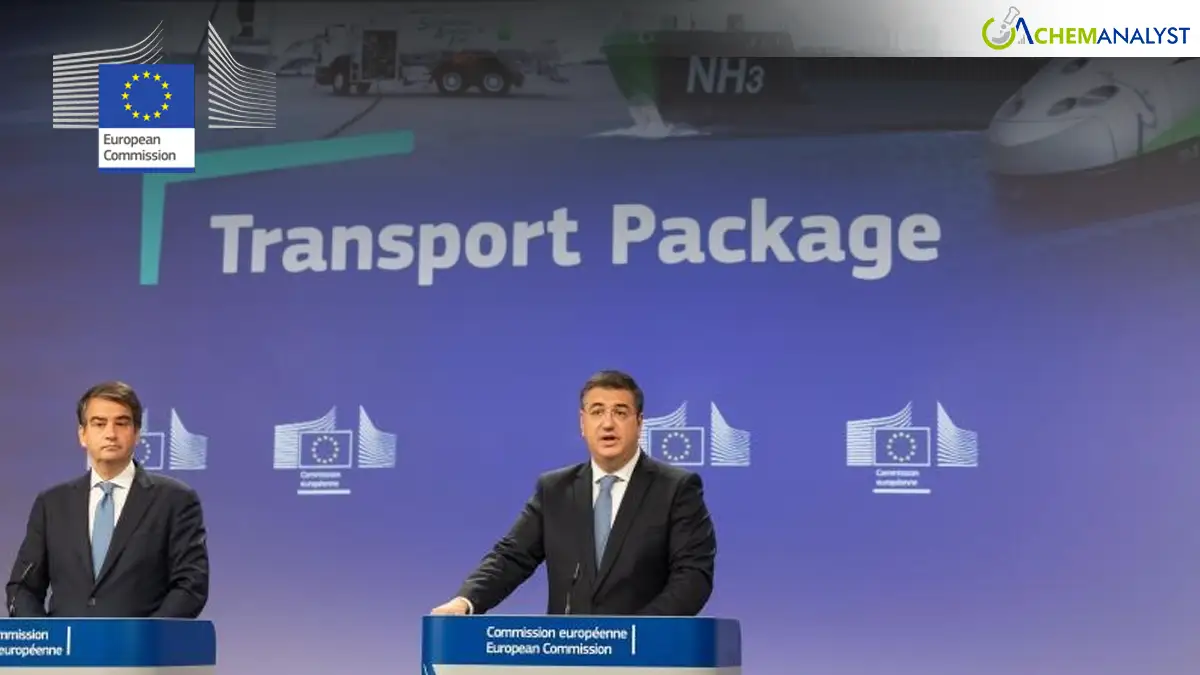Welcome To ChemAnalyst

The European Commission has adopted a comprehensive transport package aimed at dramatically expanding Europe's high-speed rail network and turbocharging investment in sustainable fuels for the aviation and maritime sectors.
The European Commission announced a major, twin-pronged transport package designed to solidify the EU’s global leadership in competitiveness and sustainability. The initiatives focus on accelerating the roll-out of high-speed rail across the continent and scaling up investment in renewable and low-carbon fuels, particularly for aviation and shipping. This strategy aims to create an EU transport system that is more efficient, interconnected, accessible, clean, and resilient.
The cornerstone of the package is the new High-Speed Rail Action Plan, which sets a vision for a faster, more interoperable, and better-connected European rail network by 2040.
The plan, which builds on the existing Trans-European Transport Network (TEN-T), foresees connecting major nodes at speeds of 200 km/h and above. Illustrative examples of the ambitious time savings include cutting travel from Berlin to Copenhagen from seven hours to four, and from Sofia to Athens from over 13 hours to just six. New cross-border links, such as Paris–Lisbon via Madrid, are also planned to simplify long-distance journeys.
To achieve this vision, the Commission proposes four key strands of action:
• Removing cross-border bottlenecks by setting binding timelines by 2027 and identifying options for speeds well above $250 km/h where economically viable.
• Developing a coordinated financing strategy, including a "High-Speed Rail Deal" through a strategic dialogue with industry and financiers to mobilise the necessary investment.
• Improving the conditions for the rail industry by enhancing cross-border ticketing, supporting a second-hand market for rolling stock, and accelerating the deployment of EU digital management systems.
• Strengthening EU-level governance to improve coordination among infrastructure managers for cross-border services and facilitate standardisation.
The second major initiative is the Sustainable Transport Investment Plan (STIP), which outlines a common approach to boost investment in renewable and low-carbon fuels for the aviation and waterborne sectors. To meet the binding RefuelEU Aviation and FuelEU Maritime targets, the EU will require approximately 20 million tonnes of sustainable fuels (biofuels and e-fuels) by 2035, necessitating an estimated €100 billion in total investment.
The plan details key investment measures designed to mobilise at least €2.9 billion through EU instruments by 2027, including:
• At least €2 billion for sustainable alternative fuels under InvestEU.
• €300 million through the European Hydrogen Bank for hydrogen-based fuels.
• €446 million from the Innovation Fund for synthetic aviation and maritime fuel projects.
• €133.5 million for fuels-related research under Horizon Europe.
Furthermore, the Commission plans to launch an eSAF Early Movers Coalition pilot project by the end of 2025 to mobilise at least €500 million for synthetic aviation fuel projects.
We use cookies to deliver the best possible experience on our website. To learn more, visit our Privacy Policy. By continuing to use this site or by closing this box, you consent to our use of cookies. More info.
